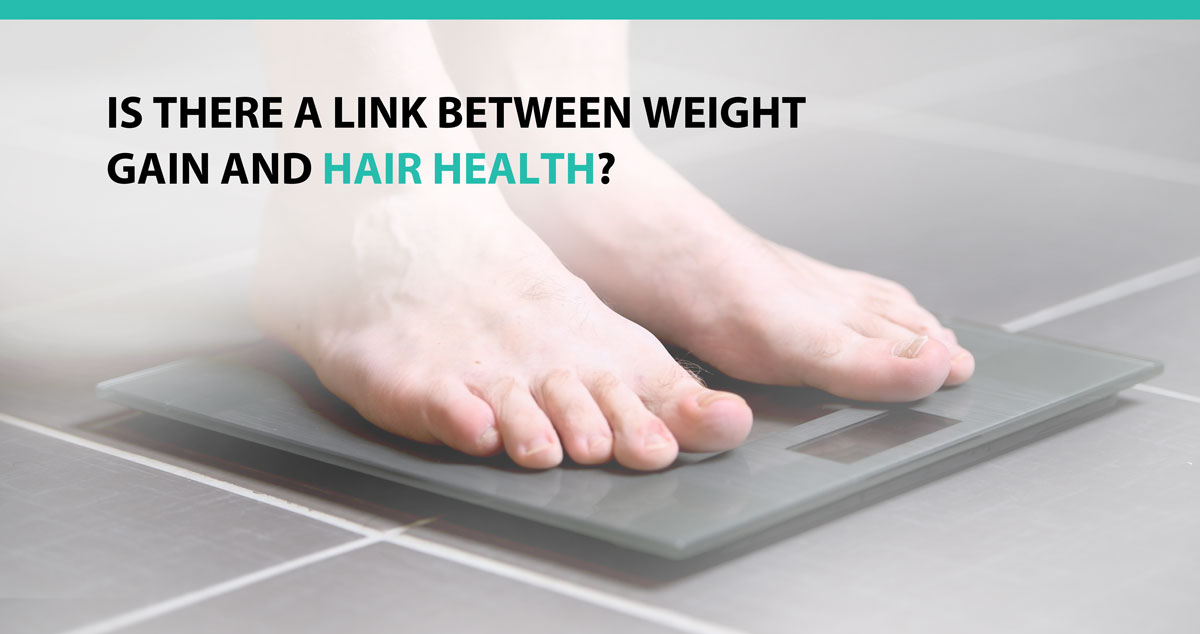
Some types of hair loss are due to unavoidable hereditary factors, while others are attributable to questionable lifestyle choices. The actual cause determines whether your hair will regrow, the kind of treatment you need, and the rate of thinning. At the Advanced Medical Hair Institute, we have an in-depth understanding of the link between your weight and hair health.
How Does Weight Gain Influence Hair Loss?
While obesity is not a direct cause of hair loss, it contributes through the following associated conditions:
- Diabetes
This illness adversely affects your circulatory system, which contributes to improper blood flow. This disruption also interrupts your hair growth cycle because your follicles depend on efficient blood flow to deliver nutrients. Most patients with Type 2 Diabetes live with the condition for years without knowing.
Fortunately, it’s possible to reverse the symptoms once it’s identified via a routine blood test. Other than medication, you can adopt a healthy diet and make other appropriate lifestyle changes.
- Heart Disease
According to one scientific study, bald men have a higher chance of developing heart disease. It’s also a comorbid condition of obesity. Medical practitioners also consider hair loss as a visual sign of heart problems. This is a logical link because a weak heart causes poor blood circulation, which disrupts the growth of hair follicles.
A conclusive diagnosis of heart disease involves reviewing your patient history and performing a physical exam. You also need imaging and blood tests. Depending on the extent of the disease, it’s treatable through lifestyle changes and medication.
- Hormonal Imbalance
Hormone fluctuations result in thinning hair by interrupting the hair growth cycle. Being overweight causes an increase in fat and estrogen levels. Obesity is also linked to thyroid disorders, which trigger hair thinning across the scalp in extreme cases.
Hyperthyroidism and hypothyroidism may be present for months before diagnosis. Because of the long hair cycle, your hair loss may not immediately be connected to thyroid disorders.
- Mental Disorders
Research is still ongoing regarding whether obesity causes depression or vice versa. Studies show that this mental disorder is more prevalent in overweight patients compared to those with a healthy weight.
Stress is also known to play a role in at least three types of hair loss. They include alopecia areata, telogen effluvium, and trichotillomania. Although these are two separate disorders, prolonged stress can lead to depression.
How to Manage Weight-Related Hair Loss
As you grow older, your body’s metabolism slows down. It’s easy to gain weight if you don’t take deliberate steps to follow a healthy lifestyle. Your ideal weight takes into account factors such as height, age, build, and gender.
Adopting a healthy diet is the most effective way of achieving a suitable BMI range. It might also reverse hair loss by improving blood circulation and treating some conditions associated with obesity. Avoid foods rich in sugar and saturated fats.
A hair-healthy diet contains a variety of nutrients. They include Omega-3 fatty acids, Vitamin C, iron, biotin, zinc, and lean protein. Examples of these foods are fish, vegetables, seeds, and chicken.
You can also tackle obesity through physical fitness. It’s advisable to start with manageable exercises such as walking and cycling, then graduate to weight training and intense cardio as your body builds resistance.
Some conditions such as hormone imbalance require a medical solution. We recommend seeing a qualified physician who can pinpoint the exact cause of your weight gain. That way, you can take specific measures to improve your physical and mental wellbeing, as well as your hair health.
Are You Ready to Restore Your Hair?
At the Advanced Medical Hair Institute, we take an all-around approach to solving hair problems. This process involves performing a thorough evaluation, which enables us to craft customized treatment plans. Whether your hair loss is the result of hereditary or lifestyle factors, Dr. Joseph Williams will provide a conclusive solution. Please schedule a consultation today for natural-looking results.










